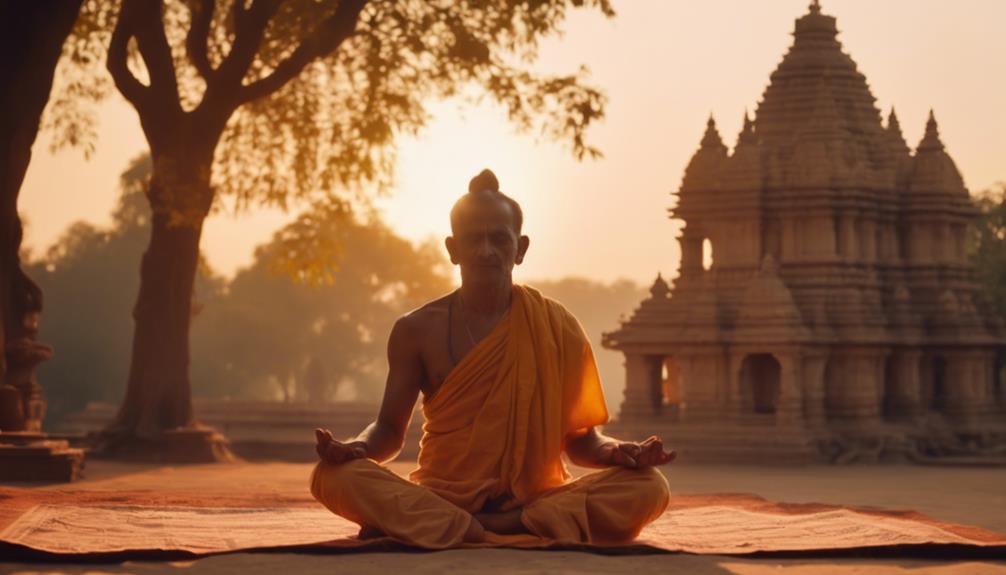
In a world that often feels chaotic and frenetic, yoga has emerged as a beacon of tranquility and mindfulness. While many embrace it as a holistic approach to physical and mental well-being, questions about its spiritual implications and moral standing linger in the air. Is yoga, with its ancient roots and philosophical depths, a pathway to serenity or a slippery slope towards sin? Join us as we stretch our understanding of this intriguing practice!
Stretching Boundaries: Is Yoga a Path to Sin or Serenity?
The debate around the idea of yoga being sinful largely stems from its intricate connection with Eastern spirituality and practices that some may view as incompatible with Western religious beliefs. Critics argue that engaging in yoga poses, often accompanied by meditative mantras or chants, may lead practitioners away from their faith. For some, the concern lies in the potential conflict between yoga’s spiritual undertones and traditional religious teachings, breeding a sense of unease. who is the founder of yoga
However, proponents of yoga assert that the practice is not inherently tied to any particular religious ideology, but rather serves as a conduit for personal growth and inner peace. They argue that yoga is a versatile tool that can enhance one’s life irrespective of religious affiliations. Many practitioners find that the mindfulness gained through yoga deepens their appreciation for their own faith, allowing for a more harmonious coexistence between spiritual practices.
Moreover, the physical benefits of yoga—such as increased flexibility, strength, and stress relief—are compelling arguments against the notion of it being sinful. Science has shown that yoga can lower anxiety, improve mental clarity, and foster emotional resilience. These tangible benefits can lead individuals to cultivate a more positive outlook on life, which often translates to kind actions and compassionate living. So, when pondering the question of sin versus serenity, it becomes essential to view yoga through the lens of individual experience and intention.
Finding Balance: Unraveling the Myths of Yoga and Morality
As with any widespread practice, misconceptions about yoga abound. Some critics contend that yoga promotes a form of escapism or detachment from reality, potentially leading practitioners away from their moral responsibilities. Yet, this myth overlooks the essence of yoga: to cultivate awareness and presence, urging individuals to engage more fully with their lives, rather than retreating from them. Through mindful practice, yoga encourages practitioners to embody virtues such as compassion, patience, and integrity.
Another prevalent myth suggests that yoga is solely about physical postures, neglecting its rich philosophical foundation. This view dismisses the broader principles of yoga, which emphasize ethical living through the Yamas and Niyamas—guidelines that encourage self-discipline, respect for others, and a commitment to personal growth. By adhering to these principles, practitioners can cultivate a lifestyle rooted in morality and mindfulness, fundamentally challenging the perception of yoga as a sinful practice.
Ultimately, the discourse surrounding yoga and morality invites a deeper exploration of personal values and beliefs. For many, yoga serves as a bridge between body and mind, fostering a holistic sense of well-being that promotes ethical living and social responsibility. As practitioners delve into their yoga journey, they often find that the practice empowers them to be more compassionate, understanding, and engaged members of their communities, reinforcing the idea that yoga can indeed be a path to serenity rather than sin.
As we roll up our mats and reflect on the profound debate surrounding yoga, it is clear that the practice offers a multitude of benefits that transcend the narrow confines of sin and morality. Whether one views yoga through a spiritual lens or as a means of physical health, it becomes evident that the true essence of yoga lies in the intention behind the practice. By embracing yoga with an open heart and mind, we can foster a deeper connection with ourselves and those around us, proving that serenity and ethical living can coexist beautifully in our daily lives. So, let’s stretch our boundaries and find balance, one mindful breath at a time!





